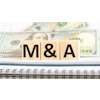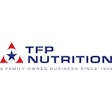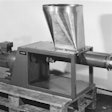Every industry firm, no matter what size, should plan for the daunting task of recalling products for one or more reasons: human error, supplier error, intentional/unintentional contamination, for example. Being prepared is the best way to handle a recall.
This article is intended as a guide to important factors to consider in handling those incidents. Every firm should have a procedure in place that is developed in concert with:
- Senior management;
- Plant quality personnel;
- Manufacturing personnel;
- Public relations staff; and
- Legal counsel.
Recalls can be either from one or more facilities and/or from upstream or downstream in a facility's supply chain. Responses to different types of recalls are dependent on several variables, including the hazard, level of risk, amount of product/animals affected and how much control a firm has over its affected products.
Reasons for a recall
Several factors must be considered in determining if a recall is warranted, including the complete information about the event or incident that caused this situation. Complaints, animal deaths, reports from suppliers and customers are just a few reasons to consider a recall. Good corporate citizenship, minimizing liability exposure and avoiding government sanctions are all excellent reasons for acting as well.
If a voluntary recall is requested by a regulatory agency, firms should not ignore them. Generally, the federal and state sanctions are quite severe and may include loss of license, criminal/civil lawsuits, fines and loss of property.
There are no mandatory recalls in either federal or state feed laws. Both groups have administrative detention authority, controlling movement of products with reasonable cause of being in violation of an applicable law.
For animal foods, FDA has administrative detention authority and records review authority under the Bioterrorism Act (http://www.fda.gov/oc/bioterrorism/bioact.html), but this can only be invoked by the agency with credible evidence of serious adverse health consequences or death in man or animals. On the state side, Michigan requires reporting of contamination, and such reporting cannot be used against a firm in any action taken by the department. Florida requires reporting of corn or other grain load refused for aflatoxin, and non-reporting is subject to a $100 fine.
Before a recall
In case a recall is needed, all firms should designate a recall coordinator and sole spokesperson for the company. Companies should also define the recall team that goes into action when called by the coordinator. A firm's customers and suppliers may need to designate a recall contact person also, and one may be needed for each facility. Firms may require outside consultants on a recall team also, such as toxicologists, attorneys, microbiologists or others.
Initiating a recall
Once a decision has been made to initiate a recall, a firm must immediately stop distribution of all potentially implicated products, assemble the recall team and launch an inquiry into the cause and scope of the problem. It should determine who will make final decisions and impress upon all involved that the decisions must be honored.
In the area of public relations, one spokesperson should be named for the firm, and all questions directed to that person. There should be a separate team at each facility that coordinates with the corporate team. When the team meets, direction should be given to each member regarding their responsibilities and data collection to assemble and disseminate before each meeting.
Before initiating a recall, the firm must determine, among other things:
- The amount and location of product in distribution;
- Whether the defect is obvious;
- How many reports of illness or death have been received;
- Any special risks to segments of consumers (e.g., dog and cat sensitivity to acetaminophen, etc.); and
- The seriousness of the problem and the potential for harm.
It is accepted practice to resist making a decision until a firm can "get its arms around the situation" before launching a recall or notifying regulators. However, time is of the essence, and firms should move with all due speed to make these decisions.
FDA's recall procedures
FDA asks to be notified of recalls immediately, but there is no legal obligation to do so. It is usually better to contact the state feed control official (www.aafco.org) and discuss the scenario before contacting FDA or other agencies. To notify an agency or official is a business decision. Downstream customers may notify regulatory agencies in due time. Sometimes, these agencies can be helpful in getting the product out of the market. AFIA strongly recommends keeping good notes of calls, contacts, times and other pertinent information. This protects the firm and provides an account for later review.
All firms should be familiar with FDA voluntary recall regulations found here: http://www.access.gpo.gov/nara/cfr/waisidx_06/21cfr7_06.html. FDA follows this logical framework for recalls, and firms should have a working knowledge of it regardless of whether they follow it or not. Typically, firms have already begun the recall when FDA becomes aware of the situation, and the agency will gear up its district office recall coordinator and put these regulations in a firm's hands to utilize.
These regulations offer several definitions and provide insight about what to expect when working on a recall with FDA. They also include the time-honored descriptions of Class I, II and III recalls, of which Class I is the most serious. Under the Bioterrorism Act, it is the one most likely to trigger an administrative detention and/or records request from FDA.
A large portion of the regulations is concerned with the depth of the product contamination, whether an adulterated product went to retail, farm-level and the impact on human/animal health.
Practical tips during a recall
Again, there should be one spokesperson for the company for all media inquiries. This person should work with senior management, public relations consultants and attorneys in developing a clear message. A consistent message should also be developed for customers.
Firms should prepare a media release with all the current information. In dealing with the media, the firm should control the information flow. Media contacts can be used for damage control or to deliver information. Firms should agree upon their objectives before dealing with media calls. They should also keep employees informed with real information to corral the rumors and quell their fears.
Assuming a firm notifies a federal/state agency, there will be one or more visits to each facility involved to interview and collect samples and information. This will consume considerable amounts of time. Actually, state and federal agencies are entitled to very little information or records except under notices provided to the firm as detailed in the Bioterrorism Act regulations. Firms must decide before a recall what and how much data they will provide to agencies. Some firms are more cooperative with regulatory officials in recall settings.
Thorough notes should be maintained of interviews with regulatory officials and copies in a separate file of all documents provided them. The same applies for samples taken by FDA or the state. Firms should advise customers if customer lists are provided to regulators. A separate letter to customers about the circumstances and urging cooperation is recommended.
After the recall
Firms actually won't know when the recall investigation has ended. They may believe the recall is over after the last product is returned. However, interviews and record reviews by regulatory officials may continue for months.
For the firm's benefit, a review of the recall, procedures used and changes to be made in the process should be undertaken to hone the firm's recall procedures for the next event.
Protect yourself
Recalls are inevitable as long as the possibility of human errors exists. The most important part of the recall process is developing sound procedures for handling recalls before an event. These procedures should create a recall process and team, advise employees how to handle complaints from customers, how to deal with media and how to respond to regulatory agencies if and when they are notified.
Protecting a firm and its reputation can be just as important as removing potentially harmful products and cooperating with regulatory agencies.






.png?auto=format%2Ccompress&fit=crop&h=167&q=70&w=250)










